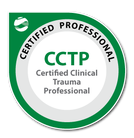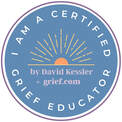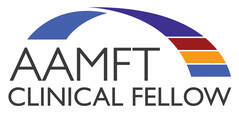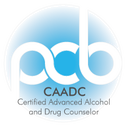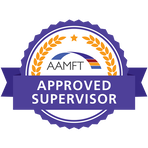|
“The weak can never forgive. Forgiveness is the attribute of the strong.”–Mahatma Gandhi
Whenever the topic of forgiveness comes up in sessions, most people immediately go to the question, ‘How do I forgive when I have been hurt so much?’ This, to me, is the wrong question to be asking. Instead I try to focus on why we would want to forgive. The Buddha has said, “Holding on to anger is like grasping a hot coal with the intent of throwing it at someone else; you are the one who gets burned.” I love this quote. I know there have been times when I have been angry at someone and then saw that person out having fun and laughing. It burned me up inside when I saw that they were happy and I was still angry and hurt. It was that hot coal that I was holding with the intent of throwing, but all the while I was the one in pain. When we begin to see how the anger and hurt we hold is not hurting the other person, but only causing pain in us, we begin to see the why of forgiveness. As I envision us as people we have an authentic self that is within, what religions term the soul. I usually point to the heart when I talk about this. When we have hurt, anger and raw pain that hasn’t been healed, it is like a blockage between our authentic self and the world. It is a part of us that is separated, cut off and isolated. When those blockages are small, they don’t interfere too much in our daily life, but when they become bigger the effects of the separation and isolation can be seen and felt. The underlying pain manifests in different ways in different people. Some withdrawal and they themselves become isolated with depression. Others become hypersensitive or over react to small disappointments. Others become angry or vengeful and lash out at others. Under it all is pain and the pain comes from the separation between who we authentically are and the version of life we are living. So, the why of forgiveness is to remove the block in us that stops us from living life fully and engaging with others in healthy ways. Forgiveness has nothing to do with the other person and it has absolutely nothing to do with forgetting. The fact that it happened will always be there, but through forgiveness work the reaction to the incident no longer has the power to keep us stuck. Once it is removed, our authentic self is once again able to connect with others and the world. Removing the block is the greatest gift we are able to give our self.
0 Comments
“It’s one of the greatest gifts you can give yourself, to forgive. Forgive everybody.” –Maya Angelou
Forgiveness is a funny thing. We are told from the time we are little to say we are sorry as soon as we do something wrong. Those words ‘I’m sorry’ are supposed to be the magic wand to repair the damage that was done. As a parent I have often told my kids that the sarcastic ‘sorry’ that they gave me wasn’t good enough. I have caught myself yelling at them, “Say sorry like you mean it!” What does it mean to apologize like we mean it? We are taught that there are certain words that we are supposed to say when we have done something wrong. When we carefully speak these words we expect that the person hearing the words will accept our apology and we move on. Many times though we struggle to be able to truly forgive, even when someone says all the right words. I have come to believe that apologies and forgiveness have nothing to do with the words that are spoken. It has everything to do with the emotion and connection that we have when we are acknowledging our own pain. The process of forgiveness is an act of courage. It is risking vulnerability when we admit that we have fallen short and hurt someone. Being on the receiving end is just as difficult. We are often hurt and angry, so instead of listening to the person making the apology, we are stuck in the anger and that part of us can never forgive. I was working with a client this week and he began talking about some of the abuse he endured as child. When I asked him how much he has been able to heal and forgive over the years he became agitated and stated that he would never be able to forgive his mother’s former boyfriend for what he did over the years. He said, “I will never forget it, so I will never forgive him.” We seem to have a mistaken notion that forgiving and forgetting are somehow synonymous. I discussed with him how the common use of the term forgiveness does imply that once those magical words are spoken the issue is over and everyone moves on like it never happened. This is not what I believe forgiveness is at all. Through our sessions I talked to him about how all of the abuse he endured is like a raw open wound and although he no longer has any contact with his former abuser, the wound is still raw. Now in his life anytime anyone, even his current wife or children, get close to anything that reminds him of the past trauma he reacts in extreme anger. It is at the point where it is causing issues in all of his current relationships. An act of forgiveness, to me, is the process of healing the wound in us. It has nothing to do with the other person. When we have an open wound it is like there is a block in us that we are unable to move beyond. My client was not able to fully connect with his family because he was getting triggered by his past pain whenever something touched upon his wound. I feel it is important to recognize that pain is a block which prevents connection with others and forgiveness is the only way to remove the block. This is a big topic and I will continue this discussion next week. “Man never made any material as resilient as the human spirit.” – Bernard Williams
As I sit with my clients week after week I hear how frustrated they are with their inability to change. They often say they want to stop using and when they are thinking rationally they tell themselves that they are never going to use again, but then the compulsion takes over and they lose the choice, only to find themselves using again. It is frustrating and disappointing each time they use and the hope that they had of stopping gets harder to find. I have often pondered whether the addiction they describe so clearly is a disease or if it truly is a choice. There is a big debate in the field and there are strong proponents on each side who argue their case. For a long time addiction was touted as a moral issue. People suffering from addiction were judged as not being strong enough to simply say ‘no’ and thus were treated poorly. More recently though, addiction has become defined through the medical disease model. The American Society of Addiction Medicine has defined addiction as “a primary, chronic disease of brain reward, motivation, memory and related circuitry.” (http://www.asam.org/quality-practice/definition-of-addiction) They clearly discuss the physical changes in the body that occur throughout the progression of addiction and discuss the way the brain’s circuitry and neurochemistry are physically changed. There are debates going on throughout the addiction field as to whether addiction is a choice or a disease. What I have come to believe is that it is not either/or, but instead both/and. Addiction is complex and to simply say it is a choice denies the fact that there are physical changes within the body which limit the person’s ability to access the rational part of the brain where choices are made. At the same time to say it is purely a disease denies the fact that people can and do stop using by choice. So, how can these two sides find some agreement? I believe it starts by looking at addiction through the mind, body AND spirit. In the mind we have the choice, in the body we have the physical disease, but the third aspect, the spiritual aspect is not usually addressed. To me, the spiritual is the authentic and genuine aspect of each of us that is under the ego. It is who we truly are. It is the spark of life itself that is breathing us and beating our heart. When we are able to help clients tap into the authentic part that is their true self, they are able to access both the power to choose and the power to heal a disease. Ultimately, whether it is a disease or a choice truly doesn’t matter. What does matter is helping people overcome their addiction. Helping each person reconnect with who they truly are is what I believe to be the first step towards recovery. It is helping them to see that under the addiction they are whole and well. Despite what they may or may not have done, they can begin to love themselves and the power of developing the spirit, the authentic part of them, is where true healing begins and addiction ends. “Be content with what you have; rejoice in the way things are. When you realize there is nothing lacking, the whole world belongs to you.” ― Lao Tzu
What does it mean to be content? According to Goggle, the definition is “in a state of peaceful happiness.” That sounds wonderful, but right now in America we are experiencing growing rates of addiction, debt and obesity. The trends are clear- we as a society are not content with what we have. We are looking for something to fill a void and we are finding that the drugs, material objects and food just aren’t enough to leave us feeling content. As I was working with a client the other week, he said to me that he needs to keep himself busy with things because he is afraid of what might happen when he doesn’t have anything to do and would have time to stop and think about his life. He used all kinds of distracting activities to avoid having time to be relaxed and quiet with himself. It became clear throughout our sessions that he had a real fear of facing some of the things that he did in his past. In contrast I have other clients that seem to completely check out to almost all feelings. They report sleeping all day and feeling like they are almost in a vegetative state to avoid having to face their past. When we are feeling anxiety we have patterned ways of responding. In Harriet Lerner’s book The Dance of Connection, she explains that we either go into over-functioning or under-functioning mode. We either become the rescuer and take over or we become irresponsible and fragile. Both are attempts to avoid looking within and dealing with the anxiety. While we tend to say that the over-functioners are coping better, in reality they are not. Neither are content with their lives and both are equally destructive if they continue those behaviors for the long term. So what does it take to become content- to reach that state of peaceful happiness? It takes the courage to go within. It takes self-compassion. It takes facing the truth about who we are as a person and not who we think we should be. We are human beings, yet very few of us take time to be. We are more often human doings or human avoidings. So take some time to just be. The more time we allow ourselves to be with ourselves the closer we get to becoming content. The key to contentment is that it doesn’t come from anything outside…we already have it within when we truly become a human BEing. “Do you want to know who you are? Don’t ask. Act! Action will delineate and define you.”― Thomas Jefferson
As I was working with a client this week we were talking about being authentic and getting in touch with that spark within that is who we truly are. She looked at me intently and noted that she hasn’t been in touch with that part in so long that she doesn’t know what that means anymore. We were able to have a good discussion on what it means to be authentic and although it sounds simple, it is not. We are taught from early on in life that we need to conform and fit in with social norms. Many of us have been taught that it is better to put other’s needs before our own. We learn to live life from the outside in. We look into other people’s eyes for approval and feel disappointed or upset when others fail to give us what we feel we are deserving of. We live life trying to please others and feel happy when others return the favor and resentful when they don’t. When we are living this way we are not in touch with our authentic part. We are living from our ego, where we are judging, critical and comparing ourselves to everyone around us in order to know where we fit in. There is a different way to live and it is by being authentic. When we are authentic we are at peace with ourselves. We do things for other people because we have made a choice for ourselves that we are going to live by being kind, compassionate and caring to others. When we decide that we are going to practice living from a place of love instead of a place of fear and comparison, we decide that we are living for ourselves. Choosing to live life from a place of love is to choose to live authentically. Taking action looks different when it is from a place of love. We choose to do things for other people because it makes us feel good to do it, instead of thinking about what we will be able to get in return. We choose to give and act graciously towards others, because we understand that we are all doing our best in life and sometimes we will fall short of where we would like to be. Every action that we take is an opportunity to learn and grow. When we recognize that we didn’t act from a place of love we give ourselves loving compassion to know that we will do better next time and then practice that when we have the opportunity. Actually living and defining our lives by our actions is taking the steps needed for us to identify who we truly are. Walking the walk is the action that defines and creates our authentic self. So get up and take some action! |
Archives
April 2020
Categories
All
|
 RSS Feed
RSS Feed
